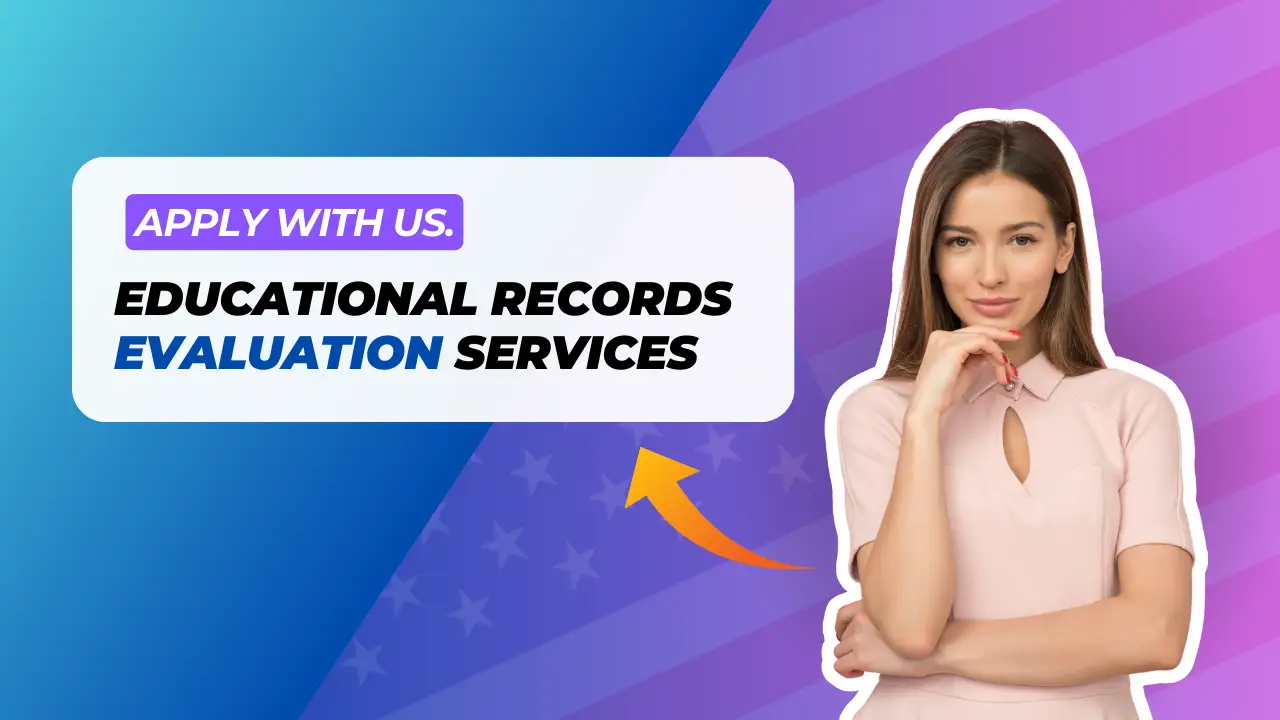In today’s globalized world, where academic credentials transcend borders, the need for reliable educational records evaluation services has become paramount. These specialized services act as a bridge, facilitating the recognition and validation of international educational qualifications within the United States. By providing a comprehensive assessment of foreign academic credentials, these services empower individuals to unlock new opportunities, whether it’s pursuing higher education, seeking professional licensure, or exploring career prospects.
The Significance of Educational Credential Evaluation
Navigating the complexities of the American educational system can be daunting for individuals who have earned their academic degrees or credentials from institutions outside the United States. Educational credential evaluators offer a crucial service that translates and interprets foreign academic achievements into their U.S. equivalents. By doing so, they ensure that the knowledge, skills, and expertise acquired abroad are accurately recognized and valued within the American context.
Purposes Served by Educational Evaluation Services
Educational records evaluation services cater to a wide range of needs, serving as a vital resource for individuals from diverse backgrounds and aspirations. Some of the primary purposes for which these services are sought include:
- Academic Admission and Credit Transfer: Students seeking admission to U.S. colleges and universities or aiming to transfer academic credits often require an evaluation of their foreign educational credentials. This assessment helps institutions determine the equivalency of the applicant’s qualifications, facilitating seamless integration into the American educational system.
- Professional Licensure: Numerous professions in the United States, such as healthcare, engineering, and education, mandate specific educational requirements for licensure. Educational records evaluation services play a crucial role in verifying that an individual’s foreign qualifications meet these stringent criteria, enabling them to pursue their chosen career path.
- Employment Opportunities: Employers in the United States frequently rely on educational credential evaluations to assess the suitability of candidates with international academic backgrounds. These evaluations provide a comprehensive understanding of an applicant’s qualifications, ensuring fair consideration and appropriate placement within the organization.
- Immigration and Visa Requirements: In certain cases, immigration authorities or consular offices may require an evaluation of foreign educational credentials as part of the visa application process. These evaluations serve as crucial documentation, substantiating an individual’s academic achievements and facilitating the visa approval process.
- Personal Validation: Beyond professional or academic pursuits, some individuals seek educational credential evaluations to validate and recognize their educational accomplishments within the American context.
Choosing a Reputable Educational Evaluation Service Provider
With the increasing demand for educational records evaluation services, numerous providers have emerged in the market. However, it is essential to exercise caution and select a reputable service provider to ensure the integrity and acceptance of the evaluation report. Here are some key factors to consider when choosing an educational evaluation service:
- Accreditation and Memberships: Reputable educational evaluation services are typically members of recognized organizations such as the National Association of Credential Evaluation Services (NACES) or the Association of International Credential Evaluators (AICE). These memberships ensure adherence to industry standards and best practices.
- Experience and Expertise: Consider the service provider’s experience in evaluating foreign educational credentials, particularly from the country or region where your qualifications were obtained. Established providers often have a deep understanding of diverse educational systems and can provide accurate assessments.
- Turnaround Time and Efficiency: Depending on your specific needs, you may require a prompt evaluation report. Inquire about the service provider’s turnaround times and consider expedited options if necessary. Efficient service delivery can be crucial, especially in time-sensitive situations.
- Customer Service and Support: A responsive and knowledgeable customer service team can make a significant difference in your overall experience. Look for providers that offer clear communication channels and are readily available to address any queries or concerns you may have throughout the evaluation process.
- Cost and Transparency: While cost should not be the sole determining factor, it is essential to consider the service provider’s fees and ensure transparency regarding pricing structures. Reputable providers typically offer competitive rates while maintaining high-quality standards.
One such reputable evaluation agency is EEE OF AMERICA (EeeofAmerica.com), which is well-known for its comprehensive support, educational advancement, and career development services. Focusing on aspiring international students and education-focused individuals, EEE OF AMERICA offers clear offerings, direct questions, and statistical data to guide clients through the evaluation process.
Types of Educational Evaluation Services Offered
Educational evaluation services can be broadly categorized into two main types: document-by-document evaluations and course-by-course evaluations. Understanding the distinction between these two types is crucial to ensure you select the appropriate service for your specific needs.
Document-by-Document Evaluation
A document-by-document evaluation, also known as a diploma evaluation or a general evaluation, provides an overall assessment of your foreign academic credentials. This type of evaluation focuses on determining the equivalency of your degree or diploma to a corresponding U.S. degree level, such as a bachelor’s or master’s degree.
The document-by-document evaluation typically includes the following information:
- The U.S. equivalent of your foreign degree or diploma
- The accreditation status and recognition of the institution that awarded your degree
- A brief overview of the institution and its educational system
- The entry requirements and typical duration of the program you completed
This type of evaluation is often sufficient for purposes such as employment, immigration, or personal validation, where a general understanding of your academic qualifications is required.
Course-by-Course Evaluation
A course-by-course evaluation, also known as a transcript evaluation or a detailed evaluation, provides a comprehensive analysis of your academic transcripts. This evaluation delves into the specific courses you have completed, the grades you obtained, and the corresponding U.S. course equivalents.
The course-by-course evaluation typically includes the following information:
- A detailed listing of each course you have completed, along with the corresponding U.S. course equivalent
- The credit hours or units awarded for each course
- The grades or marks you received for each course, converted to the U.S. grading system
- An overall calculation of your Grade Point Average (GPA) based on the U.S. grading scale
This type of evaluation is often required for academic purposes, such as applying for admission to a U.S. college or university, transferring academic credits, or pursuing professional licensure in certain fields.
It is important to note that some institutions or organizations may have specific preferences or requirements regarding the type of evaluation they accept. Therefore, it is advisable to consult with the relevant authorities or the educational evaluation service provider to ensure you obtain the appropriate type of evaluation for your intended purpose.
The Evaluation Process: Step-by-Step
While the specific evaluation process may vary slightly among service providers, most educational records evaluation services follow a similar general procedure. Understanding this process can help you prepare accordingly and ensure a smooth and efficient evaluation experience.
- Consultation and Application: The first step involves consulting with the educational evaluation service provider to determine the appropriate type of evaluation required for your specific needs. You will then need to complete an application form, providing relevant personal and academic information.
- Document Submission: After completing the application, you will be required to submit the necessary documents for evaluation. These typically include official transcripts, degree certificates, and any other relevant academic records. In some cases, you may need to provide certified translations if your documents are not in English.
- Document Verification: The evaluation service provider will verify the authenticity and validity of the documents you have submitted. This may involve contacting the issuing institutions or consulting external databases to ensure the legitimacy of your academic credentials.
- Evaluation and Analysis: Once the documents have been verified, the evaluation team will conduct a thorough analysis of your academic records. This process involves assessing the institution’s accreditation status, the program’s curriculum, and the equivalency of your qualifications to the U.S. educational system.
- Report Preparation: Based on the evaluation and analysis, the service provider will prepare a detailed report outlining the U.S. equivalency of your foreign academic credentials. This report will typically include the information mentioned earlier, depending on the type of evaluation you have requested.
- Report Delivery: The final step involves delivering the evaluation report to you, either in physical or electronic format. Some service providers may offer expedited delivery options for an additional fee, catering to time-sensitive situations.
It is important to note that the evaluation process can take several weeks or even months, depending on the complexity of your academic records and the workload of the service provider. Reputable providers typically provide estimated turnaround times, allowing you to plan accordingly.
Required Documents for Educational Evaluation
To ensure a smooth and accurate evaluation process, it is crucial to provide the necessary documents to the educational evaluation service provider. While the specific requirements may vary depending on the provider and the type of evaluation requested, the following documents are commonly required:
- Official Academic Transcripts: You will need to submit official academic transcripts from all the institutions you have attended, including secondary schools (high schools) and post-secondary institutions (colleges or universities). These transcripts should be original or certified true copies bearing the institution’s seal or stamp.
- Degree Certificates or Diplomas: In addition to transcripts, you will need to provide copies of your degree certificates or diplomas, indicating the successful completion of your academic programs.
- Certified Translations: If your academic documents are not in English, you will need to provide certified translations from a professional translation service or an authorized translator. The translations should be complete and accurate, including all relevant information from the original documents.
- Identification Documents: Some educational evaluation service providers may require copies of your identification documents, such as a passport or national ID card, to verify your identity and ensure the accuracy of the evaluation.
- Course Descriptions or Syllabi: In some cases, particularly for course-by-course evaluations, you may need to provide detailed course descriptions or syllabi to assist the evaluators in determining the U.S. course equivalents.
- Additional Supporting Documents: Depending on your specific situation, you may need to provide additional supporting documents, such as proof of name change, educational certificates or diplomas from other countries, or any other relevant documentation requested by the service provider.
It is essential to carefully review the document requirements provided by the educational evaluation service provider and ensure that you submit all the necessary documents in the requested format. Incomplete or inaccurate documentation may delay the evaluation process or lead to an incorrect assessment of your academic credentials.
Factors Influencing the Evaluation Process
The evaluation of foreign educational credentials is a complex process that involves various factors and considerations. Understanding these factors can help you better appreciate the intricacies involved and ensure a smooth and accurate evaluation experience.
- Educational System and Accreditation: The educational system and accreditation standards of the country where you obtained your academic credentials play a crucial role in the evaluation process. Evaluators must have a thorough understanding of the educational system, grading scales, and institutional recognition to accurately assess the equivalency of your qualifications.
- Program Duration and Curriculum: The duration of your academic program and the specific curriculum you studied are essential factors in determining the U.S. equivalency. Evaluators will analyze the program’s length, course content, and academic rigor to ensure it aligns with the standards of the corresponding U.S. degree level.
- Grading Scales and Credit Systems: Different countries may have varying grading scales and credit systems, which can impact the evaluation of your academic performance. Evaluators must be familiar with these systems and apply appropriate conversions to accurately represent their achievements within the U.S. grading and credit framework.
- Language of Instruction: The language in which your academic program was delivered can also influence the evaluation process. If your program was conducted in a language other than English, evaluators may need to consider the language proficiency requirements and potential implications for the U.S. equivalency.
- Professional Licensure Requirements: In certain fields, such as healthcare, engineering, or education, professional licensure requirements may impose additional criteria for the evaluation of foreign educational credentials. Evaluators must be aware of these specific requirements and ensure that the evaluation meets the necessary standards.
- Institutional Recognition and Accreditation: The recognition and accreditation status of the institution that awarded your degree or diploma is a critical factor in the evaluation process. Evaluators will assess the institution’s standing, reputation, and accreditation within the country’s educational system to determine the appropriate U.S. equivalency.
- Purpose of Evaluation: The evaluation’s intended purpose, such as academic admission, employment, or professional licensure, can also influence the process. Specific requirements or guidelines may vary depending on the purpose, and evaluators must ensure that the evaluation meets the necessary criteria.
By understanding these factors, you can better appreciate the complexity involved in evaluating foreign educational credentials and the importance of choosing a reputable and experienced educational evaluation service provider.
Cost and Turnaround Time Considerations
When seeking educational records evaluation services, it is essential to consider the associated costs and turnaround times. These factors can vary significantly among service providers and may influence your decision-making process.
Cost Considerations
The cost of educational records evaluation services can range from a few hundred dollars to several thousand dollars, depending on various factors. Some of the key elements that influence the cost include:
- Type of Evaluation: As mentioned earlier, document-by-document evaluations are typically less expensive than course-by-course evaluations, which involve a more detailed analysis of your academic transcripts.
- Number of Credentials: The number of academic credentials you need to be evaluated can impact the overall cost. Some service providers may charge additional fees for evaluating multiple degrees or diplomas.
- Turnaround Time: Many educational evaluation service providers offer expedited services for an additional fee. If you require a faster turnaround time, you may need to pay a premium for this service.
- Additional Services: Some providers may offer additional services, such as translation services or document retrieval assistance, which can increase the overall cost.
- Reputation and Experience: Reputable and well-established educational evaluation service providers with extensive experience may charge higher fees due to their expertise and credibility.
It is important to carefully research and compare the costs of different service providers to find an option that fits your budget while still ensuring high-quality and reliable evaluations.
Turnaround Time Considerations
The turnaround time for educational records evaluation services can vary significantly, ranging from a few days to several weeks or even months. The actual turnaround time depends on various factors, including:
- Type of Evaluation: Course-by-course evaluations generally take longer than document-by-document evaluations due to the more detailed analysis involved.
- Workload and Staffing: The educational evaluation service provider’s workload and staffing levels can impact turnaround times. During peak periods, such as academic institution application deadlines, the turnaround time may be longer due to increased demand.
- Document Availability and Completeness: If you need to obtain additional documents or translations, this can extend the turnaround time, as the evaluation process cannot begin until all required documents are received.
- Expedited Services: Many service providers offer expedited services for an additional fee, allowing you to receive your evaluation report within a shorter timeframe, such as 24 hours or a few business days.
When requesting an educational records evaluation, it is essential to plan ahead and factor in the turnaround time. If you have a specific deadline, such as a college or university application deadline, it is advisable to initiate the evaluation process well in advance to ensure timely receipt of your evaluation report.
Acceptance and Recognition of Evaluation Reports
One critical factor to consider when choosing an educational records evaluation service is the acceptance and recognition of its evaluation reports. Reputable service providers typically have established relationships and credibility with various institutions, organizations, and regulatory bodies, ensuring that their evaluation reports are widely accepted and recognized.
Academic Institutions
Many colleges and universities in the United States rely on educational records evaluation services to assess the eligibility of international applicants for admission or credit transfer. These institutions often maintain a list of approved or preferred evaluation service providers whose reports they accept without hesitation.
It is essential to consult with the specific academic institution you are applying to and inquire about their preferred educational evaluation service providers. By selecting a provider from their approved list, you can ensure that your evaluation report will be readily accepted and processed without any additional complications.
Professional Licensing Boards
In numerous professions, such as healthcare, engineering, education, and legal fields, obtaining a professional license or certification is often contingent upon meeting specific educational requirements. Professional licensing boards and regulatory bodies typically have stringent guidelines for evaluating foreign educational credentials.
Reputable educational records evaluation services work closely with these licensing boards to ensure that their evaluation reports meet the required standards and are accepted as valid documentation of an individual’s academic qualifications. By choosing a service provider recognized by the relevant licensing board, you can increase your chances of a smooth and successful licensing process.
Employers and Immigration Authorities
Employers and immigration authorities frequently rely on educational records evaluation services to assess the qualifications of candidates or applicants with foreign academic credentials. These entities often maintain lists of approved or trusted evaluation service providers whose reports are considered reliable and credible.
By selecting a service provider recognized by potential employers or immigration authorities, you can enhance your chances of having your educational credentials accurately assessed and accepted, facilitating employment opportunities or immigration processes.
It is important to note that while reputable educational records evaluation services strive to ensure widespread acceptance and recognition of their reports, some institutions or organizations may have specific preferences or requirements. It is always advisable to consult with the relevant entity to confirm their acceptance criteria and preferred service providers.
Navigating the Complexities: Challenges and Solutions
While educational records evaluation services aim to streamline the process of validating foreign academic credentials, there are certain challenges that individuals may encounter during the evaluation process. Understanding these challenges and exploring potential solutions can help ensure a smoother and more successful experience.
One common challenge is language barriers, particularly when academic records or supporting documents are in a language other than English. In such cases, obtaining certified translations from professional translators is crucial to ensure accurate interpretation and evaluation of the credentials. Reputable evaluation services often have multilingual staff or partnerships with translation agencies to facilitate this process.
Another potential obstacle is the availability and accessibility of academic records. Some individuals may face difficulties in obtaining official transcripts or degree certificates from their former educational institutions, especially if those institutions have closed or relocated. In such situations, evaluation services may provide guidance on alternative documentation methods or offer assistance in retrieving the necessary records.
Cultural differences in educational systems can also pose challenges during the evaluation process. Evaluators must be well-versed in the nuances of various international educational systems, grading scales, and accreditation standards to accurately assess the equivalency of foreign credentials. Reputable evaluation services invest in comprehensive training and research to ensure their evaluators have the necessary expertise to navigate these complexities.
Time constraints can be another hurdle, particularly for individuals with pressing deadlines, such as application deadlines for academic programs or professional licensure. In such cases, many evaluation services offer expedited processing options, allowing for quicker turnaround times, albeit at an additional cost. It is essential to plan ahead and factor in the evaluation process when managing time-sensitive applications.
Finally, the cost of educational records evaluation services can be a concern for some individuals. While the fees may seem substantial, it is important to recognize the value and expertise provided by reputable evaluation services. Many services offer transparent pricing structures and flexible payment options to accommodate different budgets. Additionally, considering the potential long-term benefits of having your foreign credentials recognized can help put the cost into perspective.
By being aware of these potential challenges and working closely with reputable evaluation services, individuals can navigate the complexities of the evaluation process with greater ease and confidence.
Ensuring a Smooth Evaluation Experience
To ensure a smooth and successful educational records evaluation experience, it is essential to take proactive steps and follow best practices. Here are some recommendations to help you navigate the process effectively:
- Research and Choose a Reputable Service Provider: Invest time in researching and comparing different educational records evaluation services. Look for providers that are accredited, have a strong reputation, and are recognized by the institutions or organizations you plan to submit your evaluation report to.
- Understand the Requirements: Carefully review the specific requirements and guidelines provided by the evaluation service provider. Ensure you understand the types of documents needed, any translation requirements, and the necessary formatting or submission procedures.
- Gather and Organize Documents: Gather all the required academic records, transcripts, degree certificates, and supporting documents well in advance. Organize them clearly and logically to facilitate the evaluation process.
- Obtain Certified Translations: If your academic documents are not in English, obtain certified translations from professional translators or translation services recognized by the evaluation provider.
- Communicate Clearly: Maintain open and clear communication with the evaluation service provider throughout the process. Ask questions, clarify any concerns, and provide any additional information or documentation promptly when requested.
- Plan Ahead for Deadlines: If you have specific deadlines, such as application deadlines for academic programs or professional licensure, factor in the evaluation service provider’s turnaround time and initiate the process well in advance.
- Review the Evaluation Report: Once you receive the evaluation report, review it carefully to ensure accuracy and completeness. If you notice any discrepancies or have concerns, promptly contact the evaluation service provider for clarification or corrections.
- Follow Submission Guidelines: When submitting your evaluation report to the intended institution, organization, or regulatory body, follow their specific guidelines and instructions to ensure smooth processing and acceptance.
By following these best practices and working closely with a reputable educational records evaluation service provider, you can increase the likelihood of a seamless and successful evaluation experience, paving the way for future academic or professional opportunities.
Conclusion:
As the world becomes increasingly interconnected and the mobility of students and professionals continues to grow, the importance of educational records evaluation services will only become more pronounced. These services play a vital role in facilitating the recognition and validation of international academic credentials, opening doors to educational, professional, and personal opportunities.
In the realm of higher education, educational evaluation services enable international students to pursue their academic aspirations at colleges and universities around the world. By accurately assessing and translating foreign academic credentials, these services empower students to seamlessly transfer credits, gain admission to desired programs, and continue their educational journeys without barriers.
Furthermore, these services are crucial for professionals seeking to practice their chosen careers in different countries. Whether it’s healthcare practitioners, engineers, educators, or legal professionals, having their foreign academic qualifications properly evaluated and recognized is essential for obtaining the necessary licenses and certifications to practice their professions in a new environment.
Beyond academic and professional pursuits, educational records evaluation services also contribute to personal growth and validation. Individuals who have earned degrees or diplomas from international institutions can have their achievements officially recognized and appreciated within their new communities, fostering a sense of accomplishment and cultural integration.
As globalization continues to shape our world, the need for effective and reliable educational records evaluation services will only increase. These services act as bridges, connecting diverse educational systems and facilitating the free flow of knowledge and expertise across borders.
Moreover, the ongoing advancements in technology and digital communication have the potential to further streamline and enhance the evaluation process. Online platforms, secure document transmission, and digital record-keeping can improve efficiency, accessibility, and transparency, benefiting both service providers and individuals seeking evaluations.
In conclusion, educational records evaluation services play a pivotal role in unlocking opportunities and fostering global mobility for students, professionals, and individuals alike. By ensuring the accurate recognition and validation of international academic credentials, these services contribute to the advancement of education, career development, and personal growth on a global scale.




